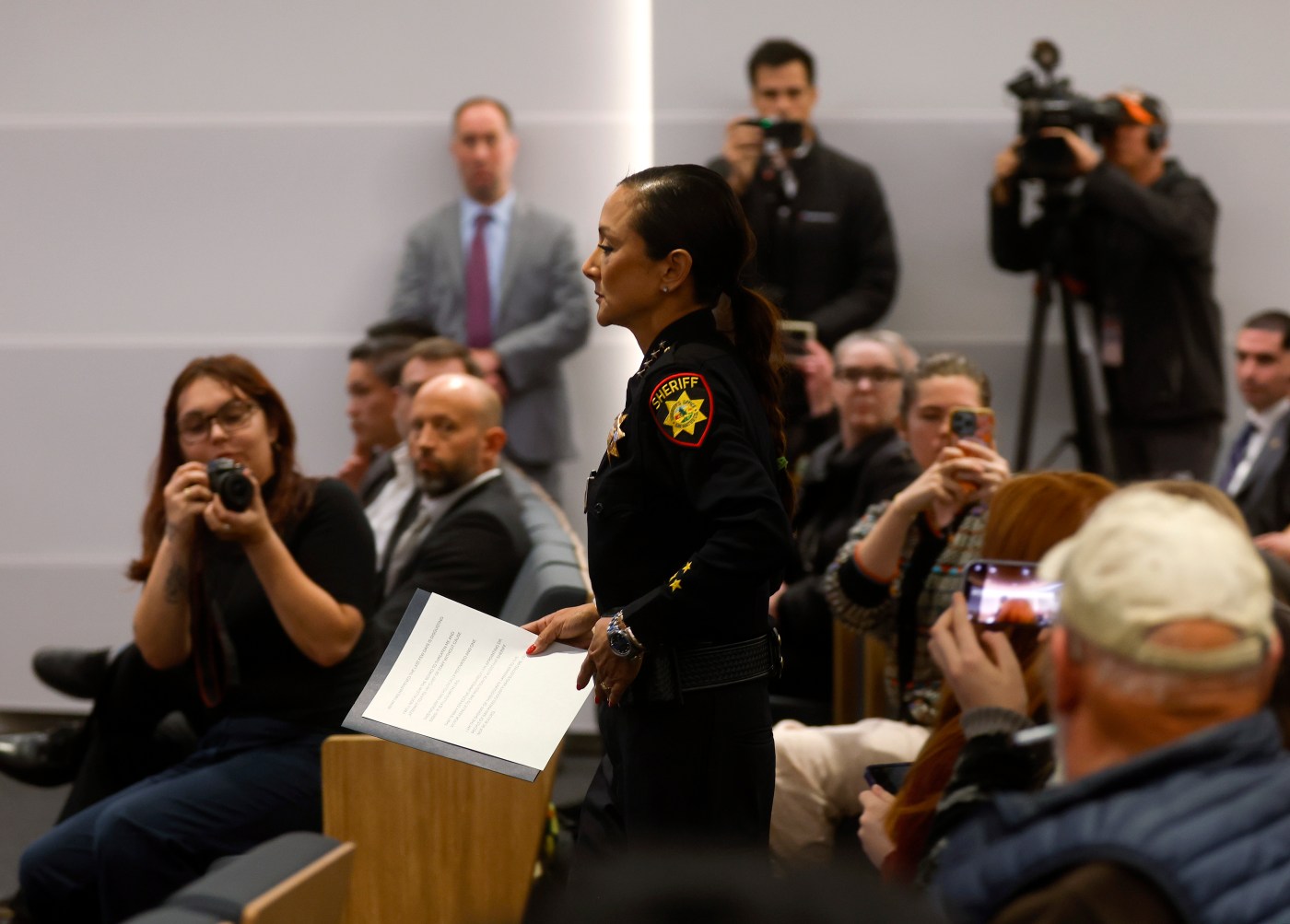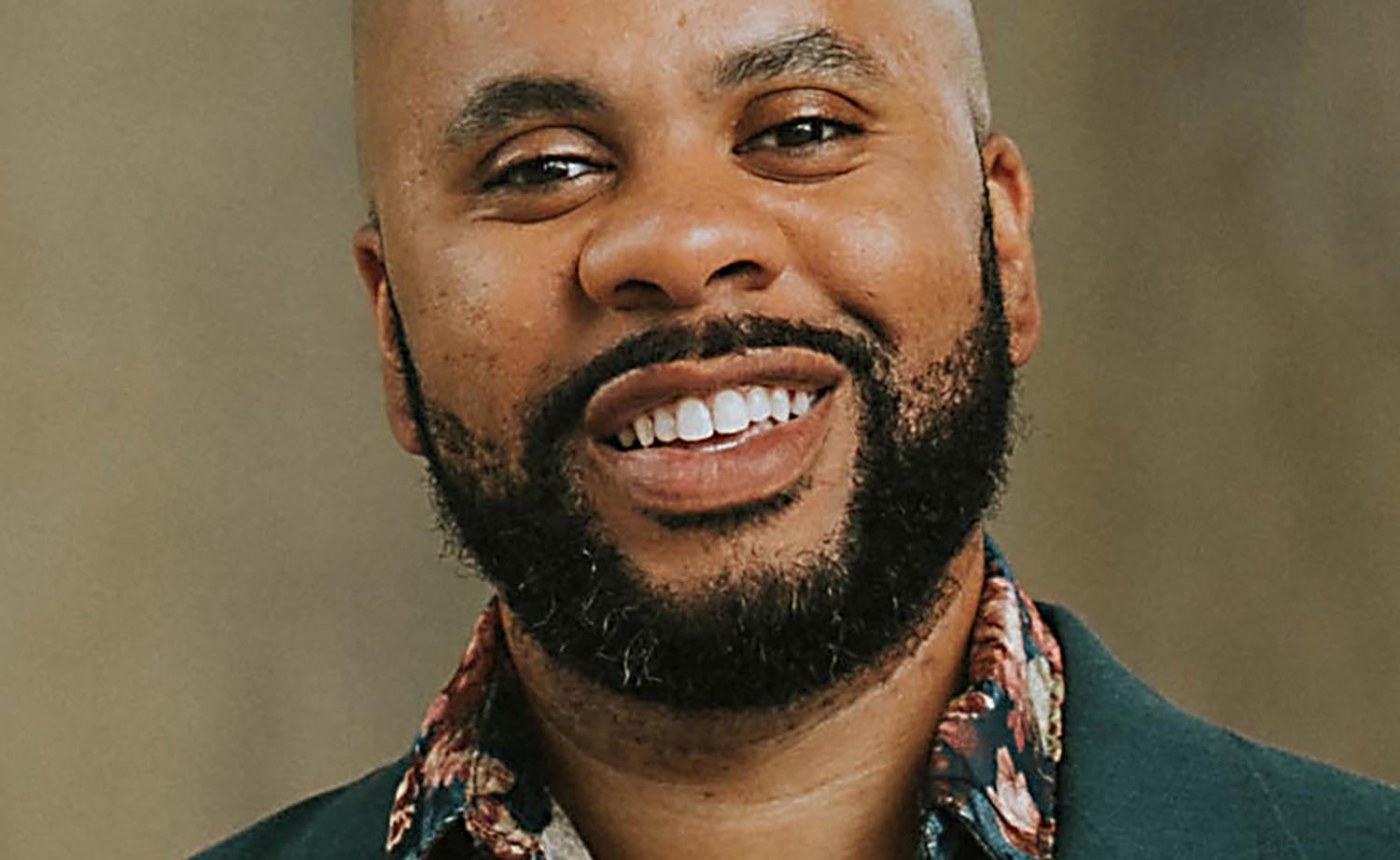A second former judge has raised concerns about a 400-page investigative report into embattled San Mateo County Sheriff Christina Corpus, calling its methodology and conclusions into question.
In a review released Friday, former Riverside County Superior Court Judge Burke E. Strunsky said the report — led by retired Judge LaDoris Cordell — suffers from “systemic methodological weaknesses” and relies heavily on uncorroborated claims, particularly from a single anonymous source.
Strunsky’s review was commissioned on April 7 by the San Francisco law firm Murphy, Pearson, Bradley & Feeney, which represents Corpus.
Strunsky, who served on the bench from 2017 to 2023, said Cordell’s investigation relied on interviews that were not recorded or documented, anonymous witnesses whose credibility cannot be assessed, and what he described as a “hyperbolic tone” that undermines objectivity.
“The cumulative pattern of unrecorded interviews, undocumented witness selection, and uncorroborated hearsay raises doubts about the investigation’s overall reliability,” he wrote. “It is this aggregate shortfall — rather than a hindsight ‘Monday-morning quarterback’ of individual choices — that concerns me.”
Related Articles
Jackie Speier presses San Mateo sheriff’s office on spending, blocked massage chair buy
Fired San Mateo sheriff’s aide tapped as reserve deputy
Labor board orders San Mateo County to respond to sheriff’s union complaint
Sheriff Corpus sues San Mateo County to force release of corruption investigation expenses
San Mateo County supervisors can initiate sheriff’s removal following charter amendment
The findings of alleged corruption, misconduct and workplace bullying in the Cordell report, released in November 2024, was the basis for the San Mateo County Board of Supervisors and other leaders calling for Corpus’ resignation, then ultimately a special election that would give the board the temporary power to remove her.
San Mateo County voters overwhelmingly approved that power in March.
Strunsky said the “most sensational allegation” in Cordell’s report — that Corpus and her then-Chief of Staff Victor Aenlle had an “intimate relationship” — rests on “little more than single-sourced hearsay” from an anonymous figure identified as “Civilian Witness #3.” He said there is no corroborating evidence such as emails, financial records, photographs, travel logs or testimony from additional witnesses.
Both Corpus and Aenlle have denied the claim.
Aenlle was removed by the San Mateo County Board of Supervisors in November 2024 but was recently rehired by Corpus as a reserve deputy volunteer to help process concealed carry weapons permits.
Strunsky raised similar concerns about other accusations in the report, including allegations that Corpus made racist and homophobic slurs. Strunsky said those claims also rely solely on the account of Civilian Witness #3, whose alleged motive to “take [Sheriff] Corpus down” was never explored in the investigation.
Regarding the Cordell report’s conflict-of-interest finding against Aenlle, who worked with Coldwell Banker, Strunsky pointed to a “striking factual error.” He noted the report incorrectly equated “CBRE” with “Coldwell Banker Real Estate” — the latter actually stands for “CB Richard Ellis,” a separate real estate firm — which Strunsky argued undermines the credibility of that finding.
Strunsky also said the claim that Corpus improperly delegated authority to Aenlle is unsupported by any documentary evidence, such as an organizational chart or official order. And he argued that Aenlle’s “Chief of Staff” badge likely does not violate California law, which prohibits impersonation of a peace officer only when there is fraudulent intent. Similar gold-tone badges are commonly used by civilian executives across the state, he noted.
He concluded that the Cordell report’s findings do not meet the high evidentiary bar required to justify the removal of an elected official.
“Accepting these claims would set an alarming precedent,” he wrote, adding that without sworn testimony and cross-examination in a public hearing, the allegations remain unproven.
Still, Strunsky said his review should not be seen as an attack on Cordell.
“This report should not be interpreted to imply any level of dishonesty or lack of credibility on the part of Judge Cordell,” he wrote. “In fact, this reviewer has great respect for Judge Cordell and her distinguished career, public service, and groundbreaking accomplishments.”
Cordell was the first female African-American judge in Northern California and previously served as an independent police auditor for the city of San Jose.
Earlier this month, Corpus sued the county, seeking a release of expenses and other documents related to the investigation. Cordell billed the county $750 an hour. The inquiry and report cost approximately $200,000.
In response to Strunsky’s review, Deputy Sheriff’s Association spokesperson Eliot Storch said the concerns are “nothing new.”
San Mateo County officials have yet to respond to questions about Strunsky’s assessment.
“The issues with anonymous witnesses — particularly Civilian Witness #3 — have already been brought up. It doesn’t change anything,” Storch said, adding that the results of the March 4 special election reflect the strength of the Cordell report. “There are still 40 witnesses who spoke with Judge Cordell, and whatever her methodology, even he admits he doesn’t have access to all her materials.”
Strunsky acknowledged that his review does not invalidate the entire investigation. But he said the path forward must include a transparent, public process.
“The path forward lies in neither shelving Judge Cordell’s work nor rushing to depose an elected sheriff,” he wrote. “What San Mateo County needs — and what the charter now empowers — is a transparent, meticulously staged public hearing that converts allegation into demonstrable fact or, just as readily, into demonstrable error.”
In such a forum, he added, “every witness must testify under oath and on the record; every interview note, email and exhibit must be produced; every assertion must withstand exacting cross-examination; and Sheriff Corpus must enjoy an unfettered right to confront her accusers and answer each charge in full view of the electorate.
“Only such an architecture of due process can transform this moment of crisis into a civic exemplar — a proceeding future generations can cite as the gold standard for democratic accountability.”





